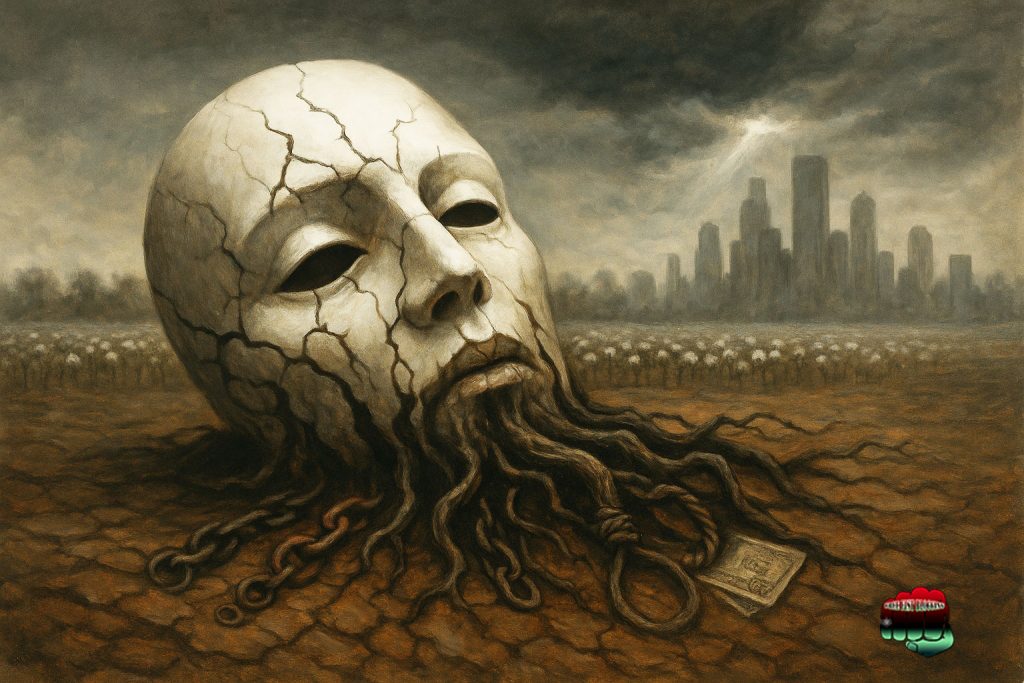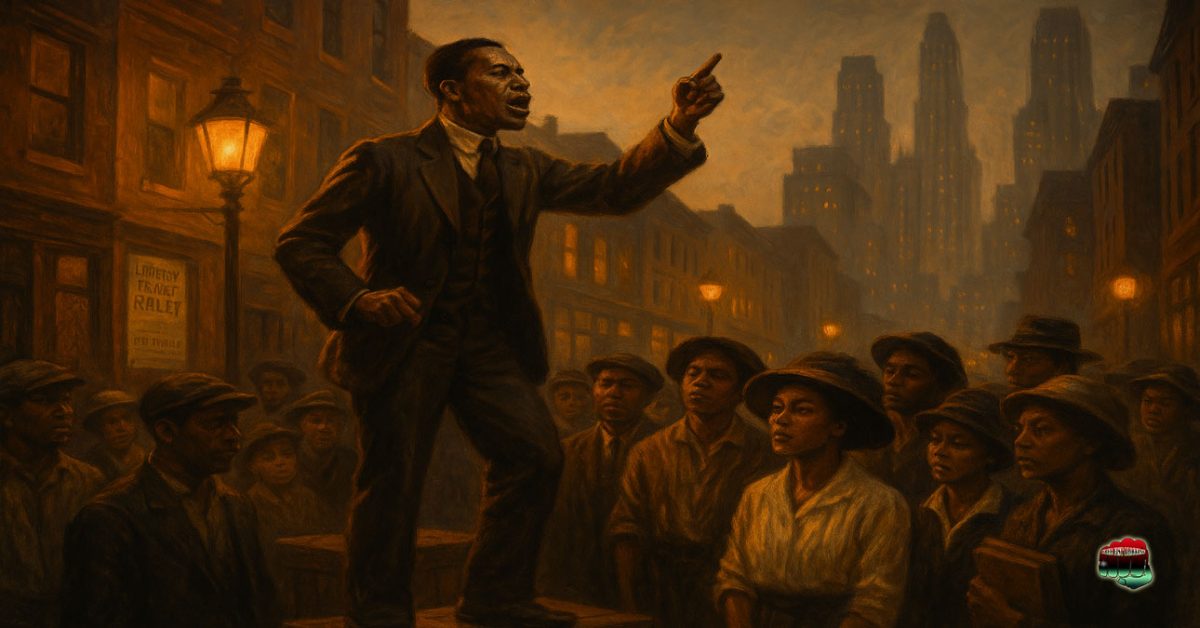InnerKwest Historica | October 9, 2025
“America’s mask has always been paper thin.” Few figures of the early 20th century exposed that fragile façade more fearlessly than Hubert Henry Harrison. A son of St. Croix, immigrant, postal clerk, socialist, educator, editor, and street-corner orator, Harrison (1883–1927) became the father of Harlem radicalism—and the conscience of a democracy that called itself free while living off white supremacy’s spoils.
The Birth of the Liberty League
In July 1917, in the aftermath of the East St. Louis pogrom where mobs slaughtered scores of African Americans, Harrison organized Harlem’s Liberty League of Negro-Americans. On Independence Day at Bethel A.M.E. Church, thousands gathered as he declared: “From this day forward, the Negro must supply himself with rifles and fight back in defense of his life, his home, and his rights as a man and citizen.”
The League, and its newspaper The Voice, became the first mass organization of the New Negro Movement. It gave Harlem a political vocabulary that was uncompromising: race pride, armed self-defense, anti-imperialism, and the demand for democracy stripped of hypocrisy. In Harrison’s vision, the Liberty League was not a temporary rally but a blueprint for global solidarity.
Mapping Oppression’s Blueprint
Harrison had a genius for linking America’s racial caste to the wider economic order:
- Jim Crow to Capitalism – segregation was no accident of prejudice; it was a deliberate labor strategy.
- Lynching to Colonialism – mob violence at home was the mirror of imperial domination abroad.
- Wall Street to the Plantation – modern finance had never severed itself from the ledgers of slavery.
In one breathtaking stroke, Harrison made clear that the racial terror African Americans faced was part of a world system of exploitation.
A Global Struggle
Harrison insisted: “Our fight is global. From Harlem to Haiti, to Africa.” Black people, wherever they lived, were locked into the same war against empire and white supremacy. Harlem, for him, was both classroom and command post—an international headquarters for liberation thought.
This was decades before “pan-Africanism” became a household word, but Harrison already saw Harlem as the diasporic capital. His message traveled across oceans, seeding movements in the Caribbean and foreshadowing the independence struggles that reshaped Africa in the mid-20th century.
Fearless Freethinker
He was a freethinker who believed democracy demanded more than slogans: it required evidence, education, and fearless debate. His “university of the street” turned Harlem’s corners into forums where working men and women engaged history, science, politics, and philosophy. No library card was needed, only the courage to listen and argue.
The Unfinished Battle
Harrison’s life was brief—he died at just 44 after appendicitis surgery in 1927—but his words carry a chilling relevance. The hypocrisies he skewered have not died:
- Book banning in schools echoes the censorship he resisted.
- Stripping women of rights mirrors the denial of universal freedom he condemned.
- “Law and order” talking points are still wielded to justify racial control, as they were under Jim Crow.
- Corporate plunder of the environment follows the same logic of exploitation he tied to capitalism.
- Executive overreach against adversaries is a modern shadow of the political repression he decried.
Truly, as he showed, “the same hypocrisies he rallied against then are still feverishly at work now.”
The Democratic Test
For Harrison, democracy was never about platitudes. It was about uprooting the system at its core.
“Democracy is worthless unless it rips white supremacy out by the root.”
That demand remains unmet. America’s mask still slips. Its paper-thin veneer of equality still cracks under pressure.

Harrison’s Challenge
Who today has the courage to carry that message? To insist that Harlem, Haiti, Africa—and every Black community—are bound in one struggle? To declare that democracy is fraudulent unless it severs itself from the plantation, the lynch mob, and the colonial outpost?
Hubert Henry Harrison did. A century later, his voice still cuts like fire through paper.
Say his name: “Hubert Henry Harrison, Hubert Henry Harrison, Hubert Henry Harrison!”
Well done, sir.
Support InnerKwest: Powering Truth & Excellence with Bitcoin
At InnerKwest.com, we are committed to delivering impactful journalism, deep insights, and fearless social commentary. Your Bitcoin contributions help us execute with excellence, ensuring we remain independent and continue to amplify voices that matter.
Support our mission—send BTC today!
🔗 Bitcoin Address: 3NM7AAdxxaJ7jUhZ2nyfgcheWkrquvCzRm© 2026 InnerKwest®. All Rights Reserved | Haki zote zimehifadhiwa | 版权所有.
InnerKwest® is a registered trademark of Inputit™ Platforms Inc. Global
No part of this publication may be reproduced, distributed, or transmitted in any form or by any means without prior written permission. Unauthorized use is strictly prohibited.
Thank you for standing with us in pursuit of truth and progress!![]()

